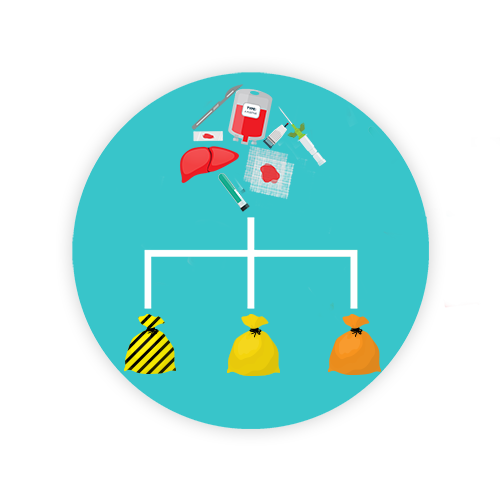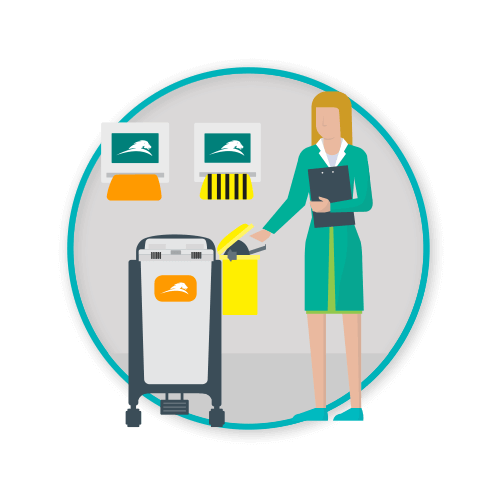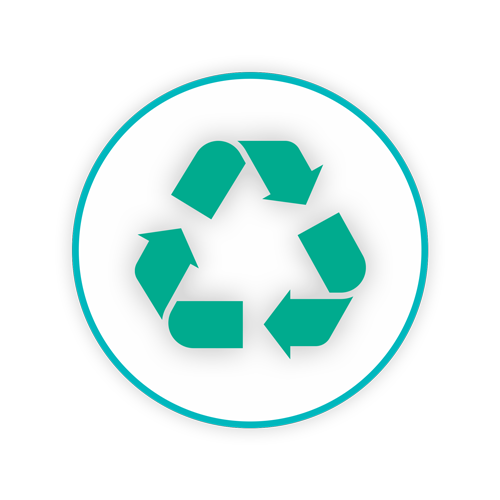Common Healthcare Waste Challenges Faced by Clinical Staff

Dealing with waste in a hospital environment is easy, right?
Nope. Clinical staff face many healthcare waste-related challenges each day that can be eliminated if the right processes are put in place. Let’s explore some of the most common issues encountered by healthcare professionals and how they can be overcome…
No time to read? No problem, we’ve summarised the key points for you in our blog summary.
TOPICS WE WILL COVER:
3 / Storage and Handling Risks
4 / Infection Prevention and Control
5 / Compliance with Regulations
9 / Three Ways You Can Improve Waste Management
10 / Are You Looking for Waste Guidance?
Lack of Awareness
One of the fundamental challenges at the root of most healthcare waste issues is a lack of awareness of the regulations and best practices for waste management. This often leads to unintended consequences that pose risks to both human health and the environment.
We’re strong believers in responding to non-conformances and compliance issues with education and training – fines alone won’t improve a lack of awareness, and there’s no point treating only symptoms when you have the cure.
Solution: Offer Blended learning through training and educational materials designed to inform staff about best practices in a way that’s relatable, and memorable.
Resource Constraints
Limited resources are a persistent issue faced by healthcare facilities throughout the UK. This includes space allocation too, such as for waste holds, waste compounds, and bin placement throughout hospital sites – all too often, it’s not considered a priority.
It’s also common for limited resources not to be optimised and used to their full potential. One example is waste containers being ‘turned’ too early. Filling containers to their maximum capacity or ‘fill’ line drives efficiencies in transport and treatment, saves money, reduces labour, and reduces CO2e. Even space limitations can be overcome through specific container placement and ensuring the right bins are in the most optimal positions.
Solution: Explore cost-effective solutions and identify efficient ways to get more out of your available resources and enhance waste management capabilities within existing limitations.
Storage and Handling Risks
Improper storage and handling of waste can expose staff and patients to unnecessary risks such as the potential exposure to harmful pathogens like bacteria, viruses, and other microorganisms. A common issue we see that increases risks is that even when correctly segregated at ward level, waste sometimes ends up mixed once taken to the waste hold.
Solution: Implement a definitive waste policy and protocols for waste handling, and establish appropriate storage locations with clear signage and labelling.
Infection Prevention and Control
The risks of infection associated with handling clinical waste are a concern for healthcare workers and this makes it imperative that all clinical staff know how to identify and dispose of infectious waste. Strict adherence to infection control protocols and using personal protective equipment (PPE) when appropriate are also crucial.
Solution: Establish clear infection prevention and control protocols to maintain a hygienic healthcare environment and continually monitor waste management practices.
Compliance with Regulations
Keeping up with and adhering to changing regulations is a continuous challenge for clinical staff. The recent update to the Health Technical Memorandum (HTM) 07-01 is a case in point – at 130+ pages, it’s not easy to find time to read the whole thing.
And after all, technical guidelines and regulations don’t tend to be the most riveting reads at the best of times…
Solution: Provide accessible bite-size updates through established communication channels and regular training sessions, and collaborate with experts to keep staff up-to-date.
Proper Segregation
Incorrect segregation is a challenge that poses a risk within the healthcare environment – resulting in financial, legal, health, and environmental costs.
Putting waste in the right bin isn’t always as easy as it sounds, especially when you’re busy and in a rush, and the correct bin for the waste you have is nowhere in sight. But when the process is optimised, you’re set up for success.
Solution: Emphasise the importance of correct segregation and provide practical guidance through ongoing training and educational materials. You can also introduce systems to make correct segregation second nature with minimal staff behavioural change.
Waste Minimisation
Prevention is always better than cure, and minimising the volume of waste being generated within the healthcare setting is an ongoing challenge that requires everyone to be on the same page as each individual working in healthcare has a part to play.
Solution: Implement waste reduction strategies such as recycling programmes and opt for reusable items to reduce single-use plastics.
Waste Training
Healthcare workers partake in a lot of training throughout their careers but training sessions and inductions rarely focus on waste management, or when they do, they barely scratch the surface – contributing to the previously mentioned lack of awareness.
Solution: Provide regular training sessions and continuous education to empower staff to safely navigate the complexities of waste management effectively and efficiently.
Proper waste training is the easiest way to overcome all of the common challenges we’ve highlighted in this blog.
If there’s one thing to take away from this blog it’s this: waste training is never wasted training.
Three Ways You Can Improve Waste Management
1.Waste Consultancy
Lean on the expertise of dedicated consultants to help you introduce tailored solutions to your facility.
With the help of waste consultancy, you can:
- Conduct a thorough audit of your current waste management processes.
- Ensure you always have enough of the right containers in the right places.
- Introduce training and education tailored to drive best practices within your facility.
Learn more about making the most of waste optimisation strategies.
2.Sustainable Procurement
Sustainable procurement is a proactive approach to moving waste up the waste hierarchy – it offers the opportunity to minimise waste even before a product or service is procured.
With the use of sustainable procurement you can:
- Engage in trial schemes to test the efficacy of a product or service.
- Work with suppliers to prevent waste and minimise packaging.
- Verify the environmental claims of manufacturers and suppliers.
Learn more about making the most of sustainable procurement strategies.
3.Data-Driven Decision Making
Implementing data-driven decision-making involves gathering and analysing information related to waste generation, disposal patterns, and environmental impact.
By leveraging this data, you can:
- Identify any issues and locate areas of need for additional training.
- Provide direct reports on non-conforming waste and incorrect segregation.
- Keep track of performance against objectives and targets.
Learn more about making the most of accurate waste data.
Are You Looking for Waste Guidance?
Healthcare waste is a vast subject fraught with nuance and challenges but when it’s understood and the right processes are in place, it can drive positive change for staff, patients, visitors, and the environment.
At Sharpsmart, we provide much more than a waste management service. Our expert consultants work with your teams within the four walls of your organisation to empower all staff to make healthcare safer and more sustainable.
If you’d like help with your waste or would like more information on waste education and consultancy, please get in touch.
Blog Summary
The common challenges outlined in this blog and the proposed solutions are:
- Lack of awareness: Solutions through education.
- Resource constraints: Optimise limited resources smartly.
- Storage and handling risks: Reduce dangers with clear policies.
- Infection prevention: Hygiene through adherence to protocols.
- Compliance: Stay updated with regulations and best practices.
- Proper segregation: Introduce systems to make it second nature.
- Waste minimisation: Choose reusables and introduce recycling initiatives.
- Waste training: Regular training sessions and educational materials.
The blog concludes with three ways to improve waste management that will help overcome the challenges and implement the solutions:
- Waste consultancy: Expert audits and optimisation.
- Sustainable procurement: Minimise waste from the start.
- Data-driven decision-making: Use accurate waste data for insights.
Fancy seeing these in more depth? Click here to head back to the top.

